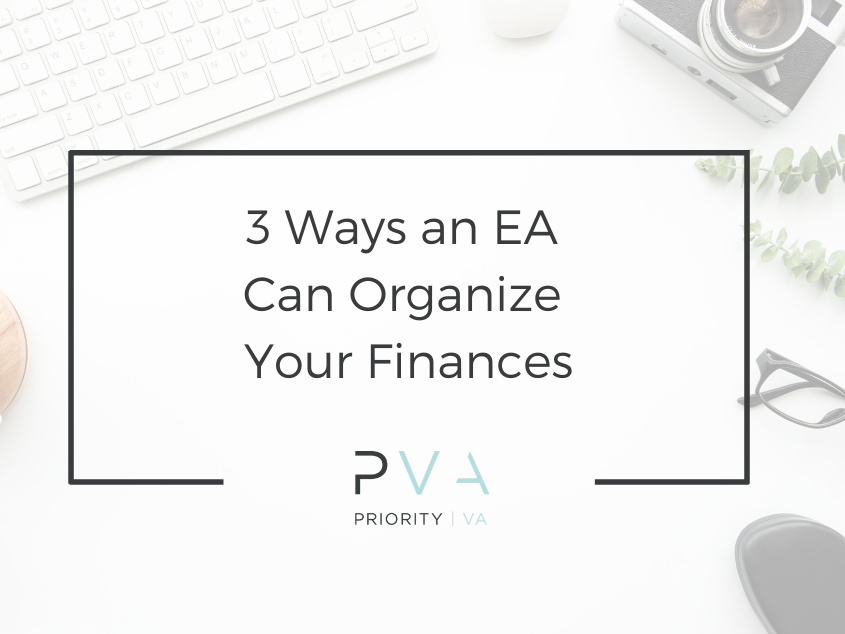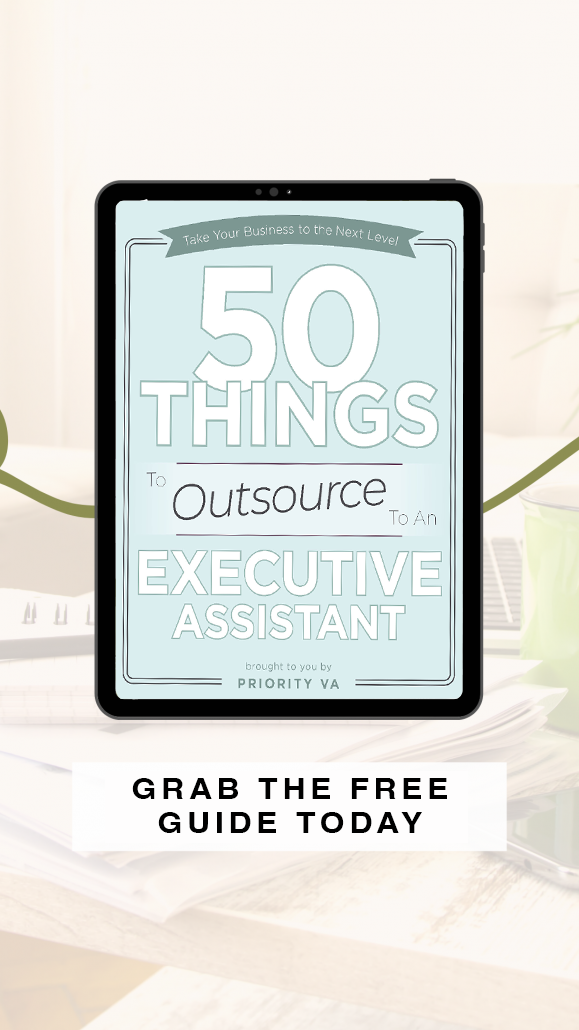Finances are such a personal and meticulous aspect of business ownership, that knowing how to integrate your Executive Assistant into financial support can be tricky.
The purpose of an EA is to reduce your administrative burden and serve as an extension of you. Supporting your financial organization definitely falls into their area of responsibility — if you as a business owner are willing to allow it.
This post will outline the ways your EA can support your finances, but it’s important to first discuss significant barriers that keep business owners from allowing EAs to do so.
Scope of Service
Many executives are comfortable working with an EA to declutter their schedule, assist with travel and manage their inbox. They are less inclined to involve them with financial matters for a couple of reasons.
First, they simply may not know that an EA can offer this type of stabilizing support. An EA is not a replacement for a bookkeeper, accountant, or tax professional. Their role isn’t to be a financial expert.
They are, however, an administrative ally who can pay attention to detail, have strong organizational skills, and possess basic financial acumen for receipt management, expense management and budgetary skills to start.
Second, an executive may lack vision for this type of support due to lack of trust.
Trust is the most important element with any team. You as the business owner must have it with your EA, and your EA must understand the significance of serving you in this capacity.
The personal and meticulous nature of finances requires a trusting relationship with your EA before support can be achieved.
If trust is the primary barrier, it is advised to establish a solid working relationship with your EA by outsourcing other areas like calendar, inbox and scheduling first before going deeper with financial activities.
Once trust is built, gradually consider if you are willing to allow your EA to do more. If you can’t see yourself doing this, or have fear that what is known won’t be kept confidential, then there is another issue to address altogether.
However, if you desire to experience administrative release and momentum with financial matters, then you should consider bringing your EA into the circle.
Before moving forward, your EA should demonstrate that they have the ability, interest and capacity to assist with finances. They should also learn what they don’t fully know with resources you provide and beyond.
If your EA’s interest and ability aligns with your willingness to delegate financial responsibility, here are 3 ways your EA can support your finances.
1. Understanding Financial Workflows
This is a great starting point for bringing your EA into a new scope of work. Invite your EA to become acquainted with the existing financial workflows. For example, what is the process for providing financial information for receipts and expenses? What type of documentation should accompany these details to help bulletproof the business or business owner in the event of an audit?
Furthermore, who is the financial team or players in or outside the business? It is important for your EA to know who does what and to determine what communications can flow through the EA as a gateway to the executive, as well as what things those people need that the EA can own on behalf of the executive.
In some instances, it wouldn’t be a far stretch for your EA to handle light bookkeeping activities in an already established system with the proper support depending on your type of business.
2. Meeting Minutes
Meeting minutes are an administrative prerequisite depending on your business structure. An EA can offer support in this area by attending meetings, documenting the matters that are discussed and the topic of vote (if applicable) and the outcome.
Make sure they understand how the business is structured and any additional compliance pieces for tax purposes.
3. Budgets and Expenses
From managing budgets and expenses for live or virtual events, to asking for or checking that all receipts were uploaded from travel, expense management is an excellent way an EA can free up your time.
Budgeting software has streamlined a lot of these processes, but don’t be afraid to show your EA under the hood. The more context an EA has surrounding payments or expenses, the better they can organize without a lot of back-and-forth with you.
The EA can also serve as a liaison between you and financial professionals so you don’t have to be in constant communication. They can also make sure critical financial deadlines and reporting times are on your calendar.
The more an EA can provide you financial support, the freer you will feel. Inviting your EA to support your finances reserves your mental energy for key financial and tax responsibilities.

If you’re interested in learning about what an Executive Assistant can do for your business, schedule a strategy call with us.
Our virtual team experts will help you determine how your business can benefit from our Priority Executive Assistants.





